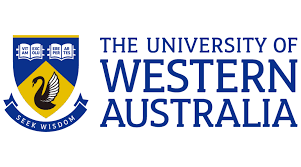University of Western Australia: Medicine-related harm in older people a major public health concern
A review into medicine safety and preventing avoidable medicine-related harm in older patients has found it is a major public health concern that requires further research.
Dr Amy Page, from the WA Centre for Health and Ageing at The University of Western Australia, was a senior author of The patterns and implications of potentially suboptimal medicine regimens among older adults: a narrative review published in Therapeutic Advances in Drug Safety.
The review, a collaboration between UWA and Deakin University, examined the prevalence, risk factors and clinical outcomes of the use of multiple medications, under prescribing and the use of potentially inappropriate medicines.
“We undertook this new work to explore prevalence, risk factors and clinical outcomes of polypharmacy and other markers of high-risk prescribing,” Dr Page said.
“Our previous work found almost one million older Australians take five or more medicines every day, which is known as polypharmacy.
“There is substantial evidence to suggest older age and indicators of poorer health are risk factors for polypharmacy. We looked at whether the risk factors are the same for younger and middle-aged cohorts as they are for older cohorts and the review suggests these may change with age.”
Dr Page said in the context of an ageing population, the burden of disease and medicine use was expected to increase.
“There are times when taking multiple medicines may be unsafe and the number of medicines, or the combination of medicines used, may increase the risk of poor health outcomes,” she said.
Under prescribing was another issue the review explored and it found there was limited research investigating the risk factors.
Medicine safety became a policy priority in many countries when the World Health Organisation launched its Medication Without Harm initiative in 2017, which aimed to reduce medicine-related harm by 50 per cent within five years. In Australia, the quality use of medicine and medicine safety became the newest National Health Priority Area.
The review looked at research published on potentially inappropriate medicine regimens and how risk was defined and measured.
“In doing so, we found a number of gaps in the existing evidence, indicating that our understanding of potentially inappropriate medicine regimens is incomplete,” Dr Page said.

